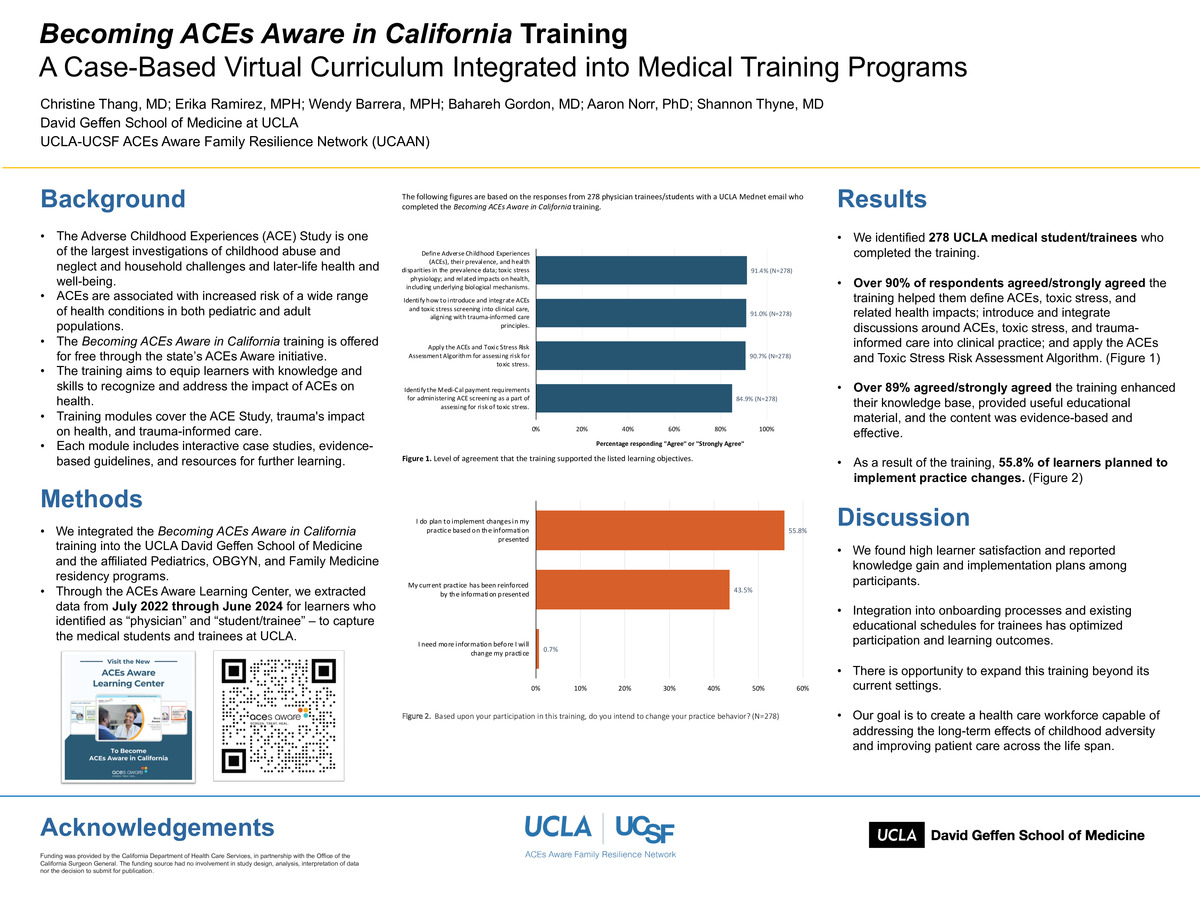
-
Author
Christine Thang -
Poster Title
"Becoming ACEs Aware in California" Training: A Case-Based Virtual Curriculum Integrated into Medical Training Programs
-
Author(s)
Christine Thang, MD; Erika Ramirez, MPH; Wendy Barrera, MPH; Bahareh Gordon, MD; Aaron Norr, PhD; Shannon Thyne, MD
David Geffen School of Medicine at UCLA
UCLA-UCSF ACEs Aware Family Resilience Network (UCAAN)
-
Contact Author Email
cthang@mednet.ucla.edu
-
Poster Abstract
Background: The "Becoming ACEs Aware in California" training, offered through the state’s ACEs Aware initiative, aims to equip learners with knowledge and skills to recognize and address the impact of Adverse Childhood Experiences (ACEs) on health. The training modules cover the ACE Study, trauma's impact on health, and trauma-informed care. Each module includes interactive case studies, evidence-based guidelines, and resources for further learning.
Methods: We integrated the "Becoming ACEs Aware in California" training into the UCLA David Geffen School of Medicine and its affiliated Pediatrics, OBGYN, and Family Medicine residency programs. Through the ACEs Aware Learning Center, we extracted data from July 2022 through June 2024 for participants who identified as “physician” and “student/trainee” to capture the medical student and trainee learners.
Results: We identified 278 UCLA medical students/trainees who completed the training. Over 90% of respondents agreed/strongly agreed the training helped them define ACEs, toxic stress, and related health impacts; introduce and integrate discussions around ACEs, toxic stress, and trauma-informed care into clinical practice; and apply the ACEs and Toxic Stress Risk Assessment Algorithm. Over 89% agreed/strongly agreed the training enhanced their knowledge base, provided useful educational material, and the content was evidence-based and effective. As a result of the training, 55.8% of learners planned to implement practice changes.
Discussion: We found high learner satisfaction and reported knowledge gain and implementation plans among participants. Integration into onboarding processes and existing educational schedules for trainees has optimized participation and learning outcomes. There is opportunity to expand this training beyond its current settings. Our goal is to create a health care workforce capable of addressing the long-term effects of childhood adversity and improving patient care across the life span.
-
Keywords
medical education, interprofessional education, curriculum
-
Poster PDF

